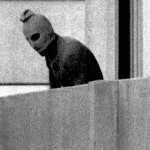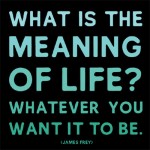A Jewish wedding ceremony is deeply symbolic. Its most famous customs comes at the end. A glass is placed on the ground. The groom raises his foot and smashes it. Everybody yells mazal tov (Congratulations and Good Luck).
Various explanations have been given for this practice. Among the most common is the idea that the breaking of the glass recalls the destruction of the great Temple in Jerusalem in 70 A.D. That event shattered Jewish history. It led to exile from the Promised Land and 2000 years of wandering.
When we break the glass, we remember that life is not always easy. Even at this most joyous moment–a wedding, a coming together for two people–we remember the past. It is part of who we are.
An Olympic Memorial
How I wish the International Olympic Committee could recognize this truth. The past month has seen a flurry of activities urging the committee to take one minute of silence to remember the 11 Israeli athletes murdered at the 1972 Munich Olympics.
That event changed the world. It turned a celebration of unity into a time of hatred and indifference. It was not only the murders that shocked the world. It was the symoblism. Munich was where Hitler got started. Germany was still living in the shadow of the Second World War. Jews were beginning to struggle with the memory of the Holocaust. Israel was on the brink of the Yom Kippur War.
The ramifications of Munich continue to this very day. The hundreds of millions of dollars in heightened security comes directly out of the environment of fear that began at Munich.
Consider the terrorists targetting of civilians that culminated in 9-11. That started in Munich. And consider the Israeli and now American policy of targetted assasinations of terrorists. That started after Munich. That tragic day looms in the background of our world.
Why, then, would the International Olympic Committee would refuse to dedicate a moment of silence to the athletes’ memory? I’d like to give them the benefit of the doubt and not conclude that it’s antisemitism, external pressure or indifference. But it may well be.
The Power of Symbols
What I do know is that symoblism matters. Memory cannot change the past. Yet, it can shape the future. When we refuse to remember, we forget. When we try to deny the past, we often repeat it.
Memory can create hope. Memory can create change. And as the families of the Munich athletes can attest, memory can comfort and console.
As prepare for two weeks of international competition–of a coming together that honors the best in the human spirit–let us remember those who were murdered as they sought to honor that spirit. Perhaps you will find inspiration, as I do, in the prayer of memory by Rabbi Jonathan Sacks:
Almighty God:
We, the members of this holy congregation,
Join our prayers to the prayers of others throughout the world,
In remembrance of the eleven Israeli athletes
Brutally murdered in an act of terrorism,
At the 1972 Olympic Games in Munich,
Because they were Israelis,
Because they were Jews.
At this time in the Jewish year,
When we remember the destructions of our holy Temples,
And the many tragedies that have befallen our people throughout history,
We mourn their loss
And continue to protest against those who hate our people.
We pray to You, O God:
Comfort the families and friends of the Israeli athletes who continue to grieve
And grant eternal life to those so cruelly robbed of life on earth.
Just as we are united in grief,
Help us stay united in hope.
As we comfort one another under the shadow of death,
Help us strengthen one another in honouring life.
The Olympic message is one of peace, of harmony and of unity,
Teach us, Almighty God, to bring reconciliation and respect between faiths,
As we pray for the peace of Israel,
And for the peace of the world.
May this be Your will and let us say: Amen


